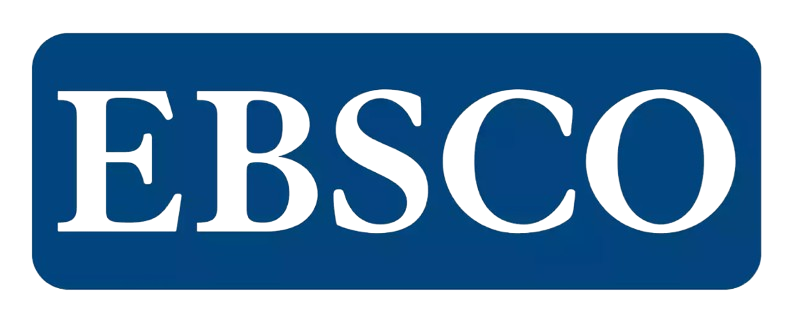Strengthening Outcome-Based Education: Capability Approach Perspective
DOI:
https://doi.org/10.52751/cmujs.2024.v28i1.jf2xyq60Keywords:
Amartya Sen, Capability Approach, Outcome-Based Education, Pedagogy, William SpadyAbstract
This paper explores the integration of the Capability Approach into Outcome-Based Education (OBE) to enhance the quality and inclusivity of educational practices. While OBE has gained acceptance for its structured approach, critics raise concerns about its potential limitations in fostering holistic development. The Capability Approach, rooted in the work of Amartya Sen and Martha Nussbaum, offers an alternative perspective, emphasizing human capabilities and freedoms. The paper advocates for a broader view of education, asserting that it should empower learners with skills beyond predefined outcomes. It discusses the theoretical foundations of both approaches, their key principles, and the potential synergies between them. The study employs a comprehensive qualitative methodology, analyzing various sources to enrich the understanding of the research topic. Criticisms of OBE include a perceived narrowing of the curriculum and concerns about its impact on individual capabilities. Case studies from different countries highlight challenges and varying outcomes in OBE implementation. The integration of the Capability Approach into OBE is proposed as a transformative avenue, emphasizing the cultivation of capabilities alongside traditional knowledge. Practical implications are outlined, including designing comprehensive learning outcomes, adapting curriculum and pedagogy, and employing diverse assessment methods. The integrated approach is seen as a means to empower learners for personal and societal flourishing, fostering inclusivity and equity in education. The paper concludes that this integration signifies a paradigm shift, redefining education as a transformative force for individual and societal progress.
Downloads
References
Alata, E. (2019). Evaluation of outcomes-based private junior high schools English curricula. International Journal of Curriculum and Instruction, 11 (1), 43-64. Alkire, S. (2005). Why the Capability Approach? Journal of Human Development, 6 (1), 115-135, Doi: 10.1080/146498805200034275.
Black, P. & William, D. (1998). Assessment and Classroom Learning. Assessment in Education, 5 (1), 7-74.
Borrero, N. & Naidoo, J. (2022). Teachers living the curriculum: culturally relevant pedagogy and action research, DOI: 10.1016/b978-0-12-818630-5.03063-3.
Cockerill, M. (2014). Beyond education for economic productivity alone: The Capabilities Approach. International Journal of Education Research, 66 (1), 13-21.
Dano, G. (2022). Amartya Sen’s Capability Approach in the Analysis of Pantawid Pamilyang Pilipino Program. United International Journal for Research & Technology (UIJRT), 3 (10), 33-42.
Datnow, A., Park, V., Peurach, D., Spillane, J. (2022). Transforming education for holistic student development. https://www.brookings.edu/articles/transforming-education-for-holistic-student-development/
Davis, A. & Winch, C. (2015). Educational Assessment on
Trial. Bloomsbury Academic. Donnelly, K. (2007) Australia’s adoption of outcomes-based education: A critique. Educational Research, 17 (2), 1-21.
Glatthorn, A. (1993). Outcome Based Education: Reform and the Curriculum Process. Journal of Curriculum and Supervision, (4), 354-363.
Gurukkal, R. (2020). Outcome-Based Education: An Open Framework. Higher Education for the Future, 7(1), 1-4. https://doi.org/10.1177/2347631119886402
Hattie et al, (2017). Visible learning for mathematics, grades K-12: What works best to optimize student learning.Corwin Press.
Hoffman, D. (2009). Reflecting on social emotional learning: A critical perspective on trends in the United States. Review of Educational Research, 79 (2), 533-556.
Irfan, S., Islam, S., & Sood, S. (2023). Studying the Status of Outcome Based Education in Educational Institutions: A Systematic Literature Review. Section A-Research Paper, 12 (4), 14234-14234.
Lawson, M. & Williams, H. (2007). Outcomes–Based Education Discussion Paper. Association of Independent Schools of SA.
Mahajan, M. & Singh, M. (2017). Importance and benefits of learning outcomes. Journal of Humanities and Social Science, 22 (3), 65-67.
Mckernan, J. (1993). Some Limitations of Outcome-based Education. Journal of Curriculum and Supervision, 8 (4), 43-53.
Murray, R. (2023). The Capability Approach, Pedagogic Rights and Course Design: Developing Autonomy and Reflection through Student-Led, Individually Created Courses. Journal of Human Development and Capabilities, DOI: 10.1080/19452829.2023.2261856.
Nakkeeran. R. et al. (2018). Importance of Outcome Based
Education (OBE) to Advance Educational Quality and Enhance Global Mobility. International Journal of Pure and Applied Mathematics, (119), 1483-1492.
Naskar, S. & Karmakar, R. (2023). A Critical analysis of outcome-based education. London Journal of Research in Humanities and Social Sciences, 23 (5), 69-75.
Nicol et al, (2019). Competence development and portfolios: Promoting reflection through peer review. All Ireland Journal of Teaching and Learning in Higher Education, 11 (2), 1-13.
Nussbaum, M. (2000). Women and Human Development: The Capabilities Approach. Cambridge University Press.
Pepito, T. (2019). Perspective on outcome-based education among faculty members teaching business courses at a Philippine university. The Palawan Scientist, (11), 49-64.
Quinto, L. (2020). Status of the Implementation of Outcomes-based education in the allied medicine programs. Laguna Journal of Multidisciplinary Research, 4 (1), 1-9.
Rajaee et al, N. (2013). Issues ad challenges in implementing outcome-based education in engineering education. International Journal for Innovation Education and Research, 1 (4), 1-9.
Rajapakse, N. (2016). Amartya Sen’s Capability Approach and Education: Enhancing Social Justice. Open Edition Journals, 14 (1), 1-14.
Rao, N. J. (2020). Outcome-based Education: An Outline. Higher Education for the Future, 7(1), 5-21. https://doi.org/10.1177/2347631119886418
Rice, A. (2010) Analysis: RIP outcomes-based education and don’t come back. http://www.dailymaverick.co.za/article/2010-07-07-analysis-rip-outcomes-based-education-and-dont-come-back/#.V3GfypMrJAY.
Robeyns, I. (2005). The Capability Approach: A Theoretical Survey. Journal of Human Development, 6 (1), 93-117.
Rose, D. & Meyer, A. (2002). Teaching every student in the digital age: Universal Design for Learning. Alexandria, VA: Association for Supervision and Curriculum Development.
Sadler, R. (1989). Formative assessment and the design of instructional systems. Instructional Science, (18), 119-144.
Schlafly, P. (1993). What Wrong with Outcome-Based Eduction? The Phyllis Schlafly Report (10), 1-4.
Senior, J. (2020). Does outcomes-based education do more harm than good? https//www.skylineuniversity.ac.ae./knowledge-update/from-different-corners/does-outcomes-based-education-do-more-harm-than-good.
Sen, A. (1985). Well-Being, Agency and Freedom: The Dewey Lectures 1984. The Journal of Philosophy, 82(4), 169–221. https://doi.org/10.2307/2026184
Sen A. (1993). Capability and Well-Being. In: Nussbaum, Sen the Quality of Life. Oxford: Clarendon Press.
Spady, W.D. (1994). Outcome-Based Education: Critical Issues and Answers. American Association of School Administrators, Arlington.
Stancescu, I. & Draghicescu, L. (2017). The importance of assessment in the educational process-science teachers’ perspective. Social and Behavioral Sciences, 7 (3), 763-759.
Stewart, F. (2013). Capabilities and Human Development: Beyond the individual—the critical role of social institutions and social competencies. United Nations Development Programme (3), 1-19.
Thirumoorthy, G. (2021). Outcome Based Education is Need of the Hour. International Journal of Research –GRANTHAALAYAH, 9 (4), 571-582
Tomlinson, C. & Strickland, C. (2005). Differentiation in practice: A resource guide for differentiating curriculum, grades 9-12. Alexandria, VA: Association for Supervision and Curriculum Development.
Vaughan, R. & Walker, M. (2012). Capabilities, values and education policy, Journal of Human Development and Capabilities, 13 (3), 495-512.
Yu, F. (2016). Outcomes-Based Education: A Subjectivist Critique. International Journal of Education Reform, 25 (3), 319-333.













 LinkedIn
LinkedIn